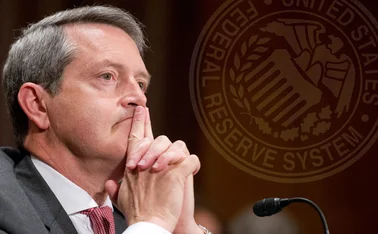
Polish governor says dissenting MPC members may have broken law
Glapiński and four colleagues could notify prosecutors over critical comments by fellow rate-setters

Poland’s central bank governor Adam Glapiński and four more monetary policy council members have accused two colleagues of potentially committing a crime by criticising them.
The statement today (October 11) by Glapiński and other MPC members did not name their colleagues, but it follows criticisms by Przemyslaw Litwiniuk and Joanna Tyrowicz.
The MPC decided to hold Poland’s policy rate at 6.75% on October 5, after hiking it for 11 consecutive meetings. The rate hold came as a surprise to
Only users who have a paid subscription or are part of a corporate subscription are able to print or copy content.
To access these options, along with all other subscription benefits, please contact info@centralbanking.com or view our subscription options here: www.centralbanking.com/subscriptions
You are currently unable to print this content. Please contact info@centralbanking.com to find out more.
You are currently unable to copy this content. Please contact info@centralbanking.com to find out more.
Copyright Infopro Digital Limited. All rights reserved.
As outlined in our terms and conditions, https://www.infopro-digital.com/terms-and-conditions/subscriptions/ (point 2.4), printing is limited to a single copy.
If you would like to purchase additional rights please email info@centralbanking.com
Copyright Infopro Digital Limited. All rights reserved.
You may share this content using our article tools. As outlined in our terms and conditions, https://www.infopro-digital.com/terms-and-conditions/subscriptions/ (clause 2.4), an Authorised User may only make one copy of the materials for their own personal use. You must also comply with the restrictions in clause 2.5.
If you would like to purchase additional rights please email info@centralbanking.com







